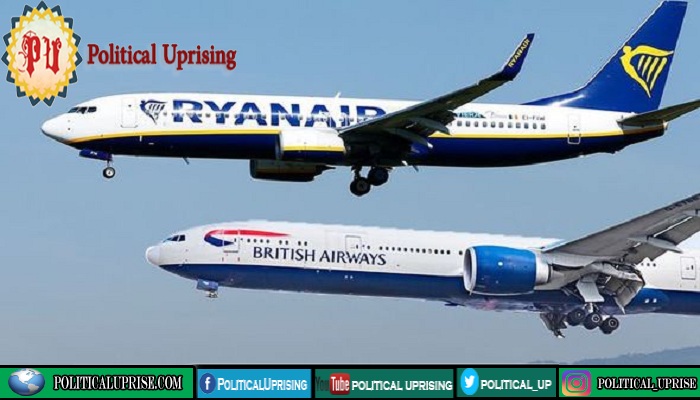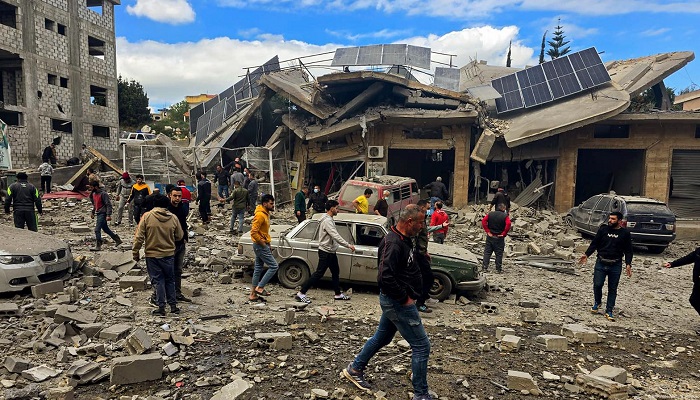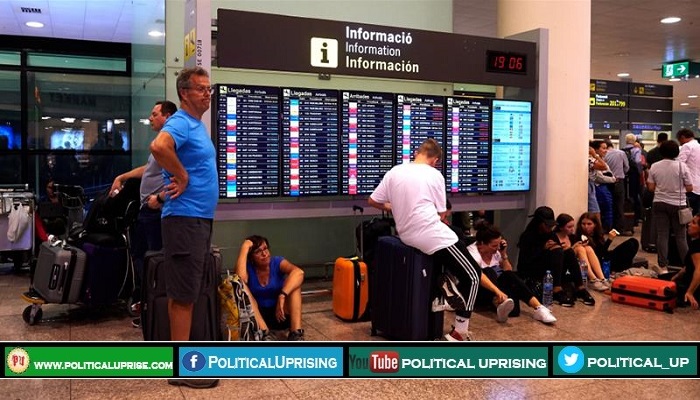UK airlines facing unprecedented crisis,they are calling for coordinated government action to ‘ensure industry survives’.
Airlines made unprecedented cuts to flights, costs and staffing on Monday, stepping up calls for emergency aid as coronavirus lockdowns and new travel restrictions hit more important routes.
Already battered shares in British Airways parent company International Airlines Group (IAG), easyJet and Air France-KLM plunged again as they scrapped most flights for the coming weeks,joining other large carriers that are all but halting operations in the face of the pandemic.
“It is now clear that the coronavirus is by far the biggest crisis in the history of aviation,” Finnair Chief Executive Topi Manner said as the carrier announced a 90 percent capacity reduction and its second profit warning in three weeks.
European Union and UK agreed to their ‘red lines’ ahead of talks
The outlook darkened further after Spain declared a state of emergency and the United States extended travel curbs to the United Kingdom,while Australia and New Zealand began requiring all travellers to self-isolate. Germany advised citizens against non-essential trips abroad on Monday.
In an unusual joint statement, the world’s three main airline alliances oneworld, SkyTeam and Star Alliance called for government aid to alleviate the “unprecedented challenges” faced by the industry.
IAG, which also owns Spain’s Iberia and Vueling, said it would cut April to May capacity by at least 75 percent and postpone CEO Willie Walsh’s retirement keeping successor Luis Gallego at Iberia’s helm as the group navigates the crisis.
Besides cancelling flights, the group announced moves to freeze discretionary spending, reduce working hours and temporarily suspend employment contracts.
Budget carriers Ryanair and easyJet announced plans to ground most of their fleets, with the latter echoing calls for government help.
Turkey to end visas for UK visitors
“Coordinated government backing will be required to ensure the industry survives,” easyJet CEO Johan Lundgren said.
IAG’s shares were down 23.7 percent at 11:57 GMT, with Wizz Air down 21.2 percent, easyJet down 19.5 percent, Ryanair down 18.8 percent and Air France-KLM 16.5 percent lower.
“Airlines are siphoning cash and have no way of stopping it” as bookings grind to a halt and traffic collapses for six to eight weeks, Bernstein analyst Daniel Roeska said.
With airlines’ survival now in government hands, he added, “the key focus should be on emergency liquidity support and enabling short-term layoffs or working-hour reductions to safeguard cash.”
The German, French, Dutch and British governments have all said they are considering ways to help the industry.
Air France-KLM said it would park its entire Airbus A380 and Boeing 747 fleets as it reduces operations by 90 percent and discusses emergency aid with the French and Dutch governments. CEO Ben Smith also told staff on Monday he had cut his own pay by 25 percent.
The group will use government-funded partial layoffs to find 200 million euros ($222m) in cost cuts as it reins in capital expenditure by a further 350 million euros ($389m).
Airlines are also likely to postpone new jet deliveries, a prospect weighing on Boeing and Airbus, whose shares were down 18.1 percent. Aircraft and engine makers also face a slump in parts and maintenance sales as air traffic withers.
Heavy fighting erupted in eastern Ukraine,soldier killed
“Demand is drying up in ways that are completely unprecedented,” aviation consultant CAPA said in a report, predicting that most global airlines would go bust by June without government help. “Normality is not yet on the horizon.”
Cathay Pacific struck a leaseback deal to transfer six of its Boeing 777s to BOC Aviation Ltd for $704m in precious cash, the Hong Kong-based carrier announced on Monday along with its own 90 percent capacity cut.
Germany‘s Tui AG and Scandinavian carrier SAS also said they were suspending the vast majority of operations and seeking government aid.
Finnair predicted a substantial loss this year as it announced the near-halt of operations and scrapped its dividend. Icelandair also slashed capacity and said it was in union talks to cut its wage bill.
Earlier, United Airlines said March revenue had dropped by $1.5bn and planes may remain near-empty into the summer even after severe schedule cuts. “This crisis is moving really quickly,” CEO Oscar Munoz and President Scott Kirby told employees in a Sunday memo.
Air New Zealand Ltd, which has halted trading in its shares until Wednesday, also plans job cuts after cutting long-haul capacity by 85 percent, CEO Greg Foran warned.
“For the coming months at least, Air New Zealand will be a smaller airline requiring fewer resources, including people,” he said.



